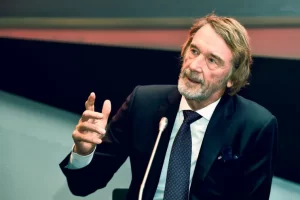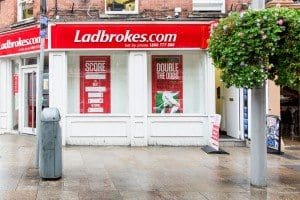Sir Jim Ratcliffe’s chemicals empire, Ineos, has introduced a company-wide hiring freeze as it prioritises debt reduction following years of rapid expansion and weakening market conditions.
The British-founded group confirmed a “general recruitment freeze” while tightening capital spending after acquiring assets worth around €2.7 billion across the US, Europe and Asia between 2022 and 2024.
The move comes as Ineos grapples with overcapacity in the chemicals market, new US tariffs and falling prices that have squeezed margins across its core businesses.
Ratcliffe, 72, who co-owns Manchester United, has halted dividend payments to focus on reducing the group’s €11.1 billion debt, aiming to bring leverage down to three times earnings.
The billionaire industrialist controls Ineos alongside long-time partners Andy Currie and John Reece through a holding structure based in the Isle of Man.
Although recruitment has been frozen, Ineos said it would continue to fill “essential” positions to sustain its 24,000-strong global workforce. Around 136 roles remain advertised across the group’s 30 business units spanning chemicals, oil and gas.
Ineos has also scaled back capital expenditure to conserve cash. However, it remains committed to its multibillion-euro ethylene plant in Antwerp, Belgium — one of Europe’s largest chemical investments in recent years.
To finance the project, the company recently raised €650 million in new debt, underlining its long-term confidence in the European market despite current headwinds.
Global chemical market slowdown hits margins
The global chemicals industry downturn has been deepened by China’s rising exports, which have outstripped domestic demand and forced prices lower worldwide. European producers, meanwhile, face higher energy costs and carbon taxes.
Credit rating agencies have reacted by downgrading Ineos’s debt, warning of uncertainty over its deleveraging targets. Moody’s said the group retains “leading market positions” and “a well-invested asset base” but remains exposed to a prolonged industry slump.
For the quarter ending 30 June, Ineos reported a pre-tax loss of €42.9 million, reversing a €291.8 million profit a year earlier. Revenues fell to €3.8 billion from €4.4 billion, while net debt stood at €11.1 billion.
The company said market sentiment “remained weak”, with Asia showing “soft conditions” and European operations hindered by energy and carbon costs. Ineos has implemented “strict controls” on discretionary expenditure and postponed non-essential projects “where it is safe to do so”.
Manchester United’s debt adds to Ratcliffe’s financial challenges
Away from Ineos, Ratcliffe faces mounting challenges at Manchester United, where the club is battling seven years of losses and £640 million of debt. Hundreds of jobs have been cut as part of a cost-saving programme.
After taking a 27.7 per cent stake earlier this year, Ratcliffe has said that the club had “gone off the rails” and been “spending more money than it’s been earning” in the run-up to his investment.
The billionaire’s dual focus — stabilising Ineos while restructuring one of the world’s biggest football clubs — highlights the growing pressure across his portfolio as global markets tighten and borrowing costs rise.
Despite the belt-tightening, Ineos insists it remains committed to its long-term industrial strategy and investment in low-carbon technologies. However, with the chemicals industry slowdown expected to persist until at least 2027, analysts say Ratcliffe faces a prolonged period of financial discipline.
As one of Britain’s richest industrialists, his ability to steer both Ineos and Manchester United through this volatile period will be watched closely by markets and investors alike.






